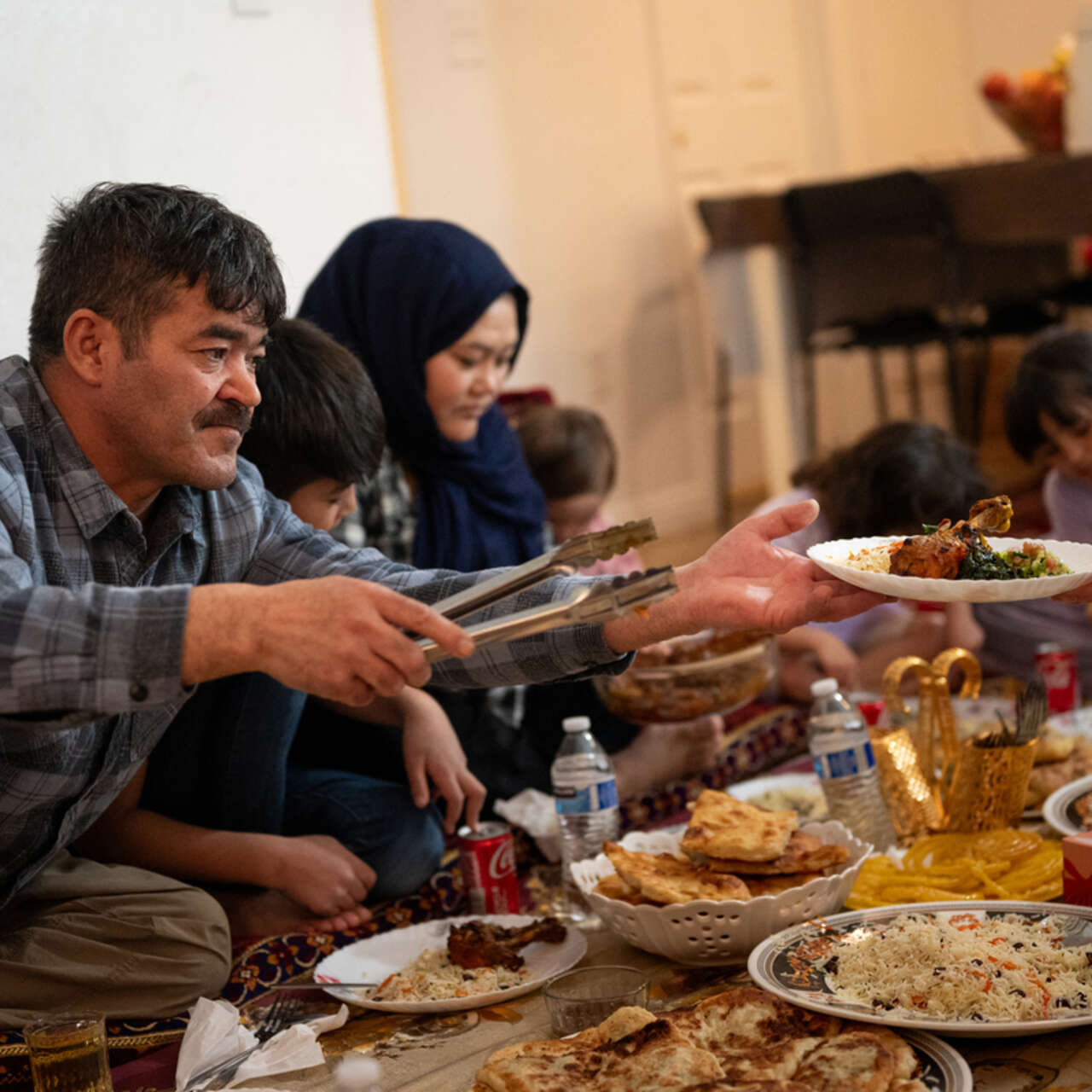
An Afghan family’s first Ramadan together after two years apart
This year, Ramadan and Eid-al-Fitr are especially poignant for the Hussaini family in Salt Lake City, Utah

This year, Ramadan and Eid-al-Fitr are especially poignant for the Hussaini family in Salt Lake City, Utah
Ramadan and the following celebration of Eid revolve around family and unity, making this period especially poignant for those who have been separated. For the Hussaini family, this marks their first Ramadan as a complete unit after being torn apart during their escape from Afghanistan in August 2021.
Reunited in Salt Lake City, Hazar, Sanowbar, and their eight children are now rediscovering the beauty of Ramadan traditions, coming together to share in the joy of preparing iftar meals to break their fasts.
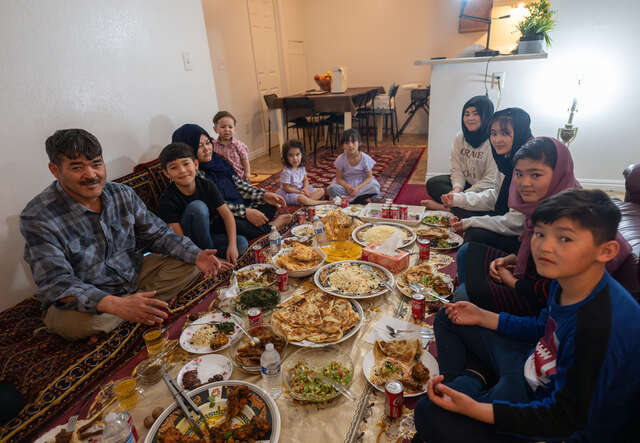
“Whenever I saw airplanes in the sky, I said I hope that one of the airplanes will be carrying my daughters to come here,” Hazar recalls.
Following the change of government in Afghanistan in August 2021, 46-year-old Hazar Hussaini felt compelled to secure his family's safety. Upon reaching Kabul airport, they encountered pandemonium and tear gas. Amidst the turmoil, Hazar's daughters, Sitara, Vaniya, and Shahla, became separated from the family and were forced to leave the airport.
The three children went to live with their grandmother while the rest of the family traveled to the U.S., but their parents knew they couldn’t rest until they were all reunited.
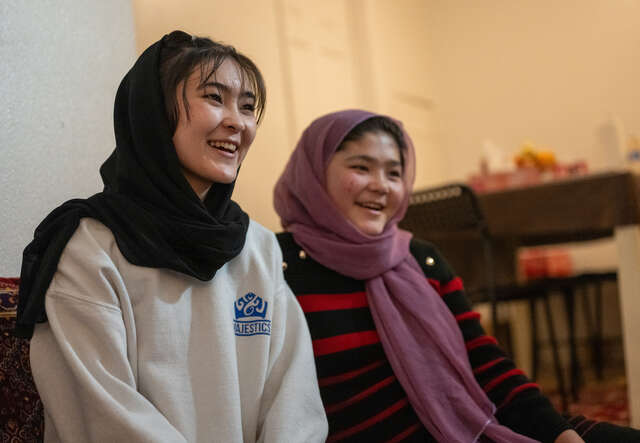
Filled with anxiety, the Hussaini family turned to a Salt Lake City, Utah office of IRC RAI for legal aid. After nearly two years, with a petition and numerous follow-up calls to the state department, arrangements were made for a flight to bring the children back home. Watch the moment the family was reunited in May 2023.
Now, Hazar and his family have finally been able to let go of the emotional turmoil that plagued them for almost two years. They can now focus on rebuilding their lives in Salt Lake City. And this month, they’ve been able to observe their first Ramadan together since they left Afghanistan.
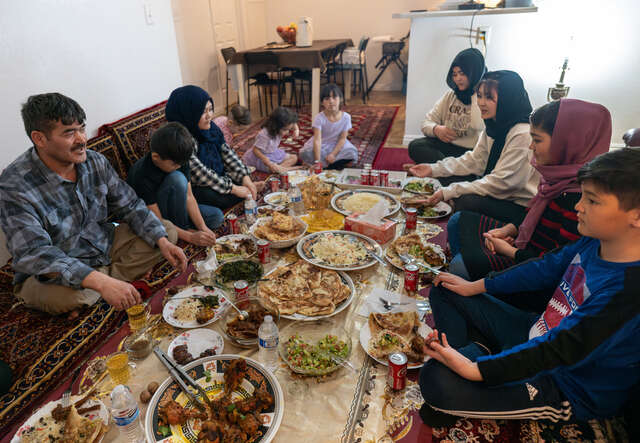
“It's very important to be with family,” Sanowbar asserts. “When our daughters were apart from us we were counting the days, we couldn't be relaxed, we were always in this deep anxiety thinking ‘Where are they and what are they doing?’ And now they are here, we’ve just lost track of time and we are not anxious anymore.”
Hazar began with a prayer before the family broke their fast with a date—a traditional Muslim ritual.
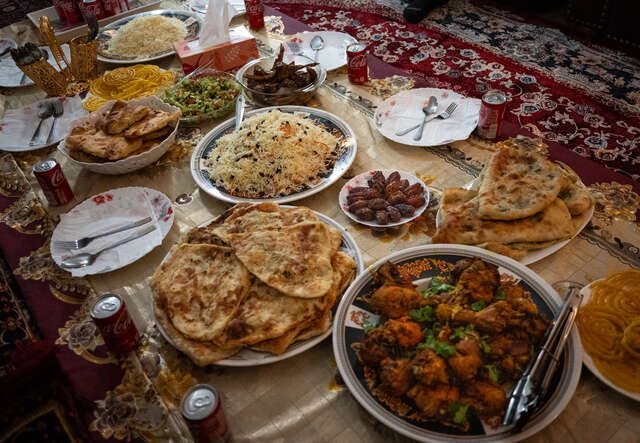
The family enjoyed traditional Afghan iftar dishes, such as bolani, a flatbread typically stuffed with potatoes, coriander and green peppers. “Ramadan is a month of fasting, prayer and recitation of the Quran. It’s a month full of blessings,” said 18-year-old daughter Shahla. This year, this held even more true for her family.
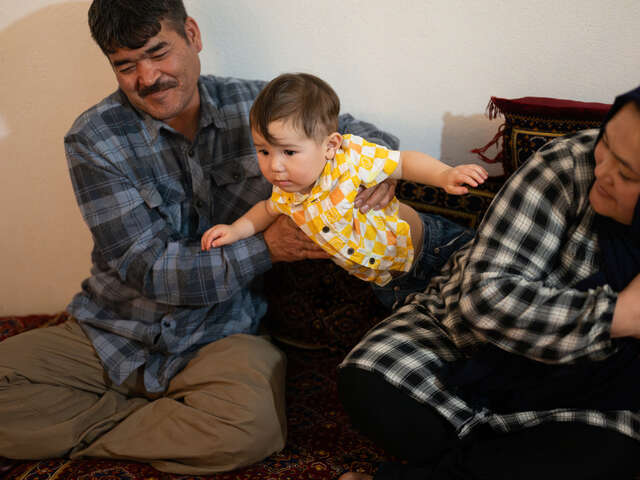
Looking ahead, Hazar and Sanowbar envision a bright future for their children. Their deepest wish is for all their kids to receive a quality education and access abundant opportunities in life. This aspiration is especially poignant for their daughters, who were once deprived of the chance to attend school. “They were away from school for two years,” says Hazar, “so seeing them enroll and go now makes me very, very happy.”
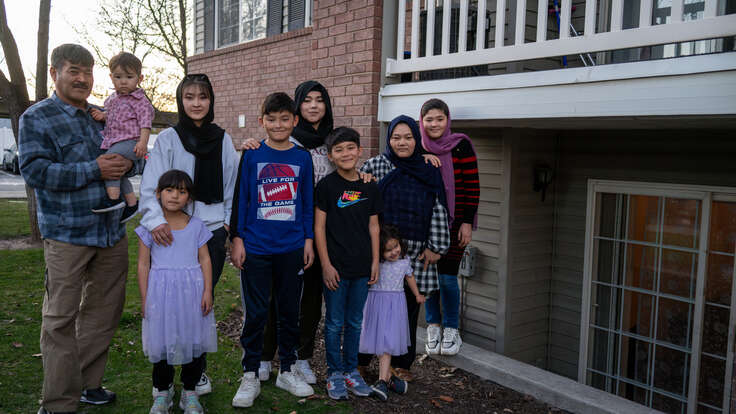
The International Rescue Committee (IRC) helps people affected by humanitarian crises to survive, recover and rebuild their lives.
Learn more about the IRC’s resettlement programmes in the US.